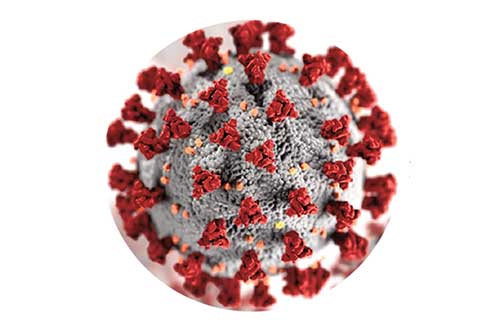Opinion
Burial or cremation – the polemic has begun

By Dr M. HARIS DEEN
The front page headline item in The Island (12.11.2020), titled “Resumption of burials a high risk the country cannot afford to take”, ascribed to Member of Parliament Muzammil, shows his ignorance; he has caused a reprehensible affront on the Muslim community.
Muzammil’ss reasoning is unacceptable, when he says “that the country was struggling to cope with the corona pandemic and no one should be allowed to play politics at a time of national health emergency”.
Yes, not only our country, but many advanced nations, like the United Kingdom, the US,. Canada and European nations, and closer to home, India and Singapore, are also facing the spread of the pandemic. This has certainly not been attributed to theburial of victims rather it has resulted from failure of the people to adhere to preventive guidelines of personal hygiene and physical distancing. All other countries, including our closest neighbour India, a predominantly Hindu country, permit burial of not only Muslims who die of COVID-19 but all others. This is what the Sri Lankan Muslims are asking for. Refusal of this right amounts to a violation of accepted human rights norms but also denial of justice guaranteed by Article 10 of the Sri Lankan Constitution which affirms that – “Every person is entitled to freedom of thought, conscience and religion, including the freedom to adopt a religion or belief of his choice”.
There is no evidence from countries which had large numbers of COVID deaths, who were buried, that burials have caused ground water contamination or led to the spread of the virus.
Muzammil has emphasised that whatever the religious dictates and sentiments, the Sri Lankan Muslim community should adhere to specific instructions issued by the Government as regards the cremation of corona victims. Of course, it is true that Muslims are the only ones taking up the case on behalf of all, irrespective of faith, who desire burial as a dignified last rites. The large number of tombstones in every graveyard bears testimony to the fact that a majority number of people prefer burial to cremation.
Muzammil continues to play politics when he says he also believes Muslims have to be buried and support that position and adds ‘but the extraordinary situation on the ground makes my personal stand, on this matter, irrelevant’. What hypocrisy? He argues that ‘Muslim burials were done in accordance with Arabian customs which the Sri Lankan community would have to give up or face the consequences’. However, what he has failed to point out was that Muslims are not requesting that they be allowed to perform the rites following a death under normal circumstances. According to the edicts issued by Muslim scholars following deaths in wars and during pandemics the need for washing the body and shrouding it with white cloth can be dispensed with, and the body can be shrouded in sealed plastic and put in a sealed coffin approved by the government. All that is necessary is to sanctify the deceased with the prayer before burial.
Coming to the Muslims, they are themselves not helping their cause. A leaderless community, hounded by self-centred politicians, and deeply divided, has failed to present its case effectively. I certainly hope that saner counsel will prevail, and the process of amending the cremation bill, to permit burial, will succeed. In this respect, Muzammil has rightly said, “The Muslim community should speak with one voice on this matter.” Whether these sentiments were genuine or otherwise, I certainly support him on this point.
In many civilizations, traditions and religions— both ancient and modern —death is a mere transitional phase between one stage of life and another. Burying the dead is one way to ensure that the dead are accorded dignity and respect, and that the feelings of their living loved ones are considered. Throughout history, religions, traditions and cultural practices have influenced the ways in which the dead are managed, both in times of peace and conflict. Today, they continue to do so.
As for Muzammil’s comment on contaminations, I repeat what I stated from authoritative sources in my earlier article to allay fears of contamination stated by Muzammil:
Microbial and chemical contamination can also occur in cemeteries as a result of unmanaged, untreated and incorrectly sited sanitation services, solid waste, and wastewater which allows for the flow of microorganisms and contaminants into cemeteries.
In general, bodies that are treated and buried in correctly sited and constructed cemeteries do not pose a threat to public health and are not a source of pollution. The WHO guidelines clearly stipulate that to date there has been no evidence to suggest that individuals have become infected from exposure to the bodies of persons who have died from COVID-19.
If conducted according to the usual recommended health and safety practices, the burial of a person who has died of C-19 should poses no risk to the environment or the people.
However, when sited properly and according to sound scientific judgment, cemeteries should protect surface water and groundwater from contamination, regardless of the cause of death.
To date there have been no reported cases of Coronavirus that causes COVID-19) being detected in drinking water, in either private boreholes or public drinking water systems coming from cemeteries. This can be related to the travel time that SARS-CoV-2 will need in order to remain infective.
So far, SARS-CoV-2 does not have a high level of persistence in the environment, due to it being an enveloped virus and can be eliminated effectively by water treatment, especially chlorination, and would pose a minimal risk to drinking water.
Email: deenmohamed835@gmail.com